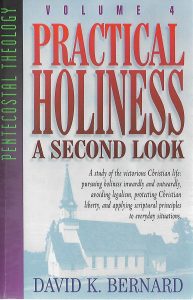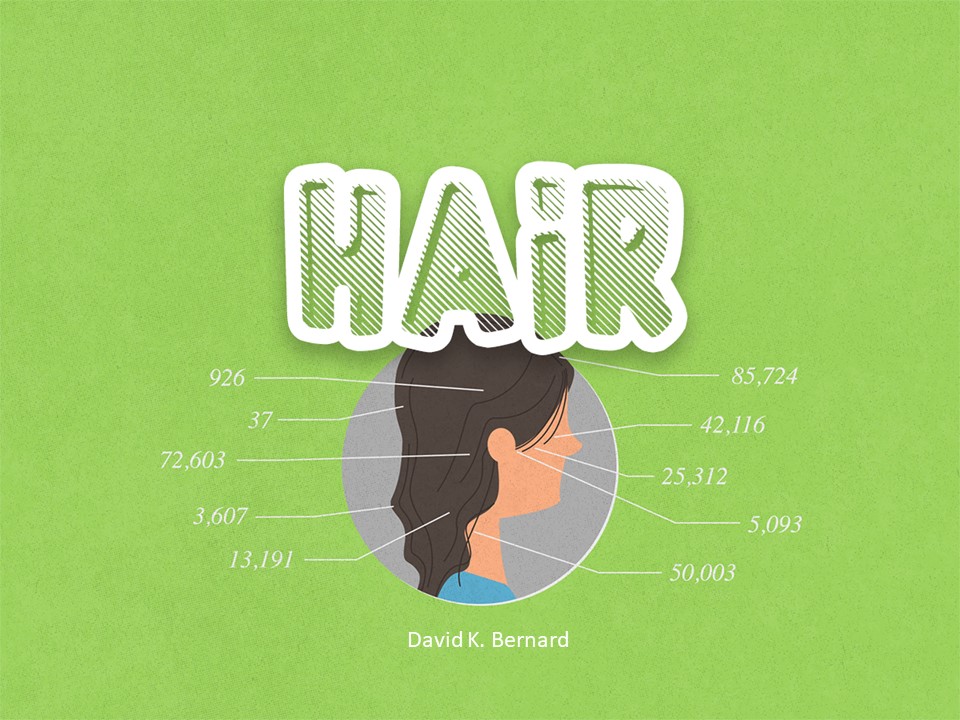
by: David K. Bernard
To View the Entire Article, Click Here
To Download the Entire Article, Outline, or PowerPoint, Click Here

“Doth not even nature itself teach you, that, if a man have long hair, it is a shone unto him? But if a woman have long hair, it is a glory to her: for her hair is given her for a covering” (I Corinthians 11:14-15).
Biblical Foundation
I Corinthians 11:1-16 establishes that men should have short hair but that women should have long, uncut hair. We obey this teaching for the following reasons derived from that passage: (1) It demonstrates the wife’s submission to the husband. (2) It demonstrates the church’s submission to Christ. (3) It is a sign to angels of the Christian woman’s obedience to God. (4) It is a shame for a man to pray with long hair or for a woman to pray with short hair. (5) Nature itself teaches these principles. (6) Long hair is a shame for a man but is a woman’s glory. (7) This is one of God’s methods for maintaining a clear distinction between male and female.
In the Old Testament, God used abundant hair to symbolize perfection, strength, glory, and separation for a holy purpose. Cutting the hair off symbolized disgrace, mourning, and glory departed. With this in mind, it is easy to see how long hair on a woman fulfills all the objectives described above.
In this chapter we address several important questions that have arisen with respect to hair.
I Corinthians 11: Long Hair as a Covering
Theologians have interpreted I Corinthians 11:1-16 in one of two ways. First, some have understood the entire passage to refer directly to hair. We basically presented this point of view in In Search of Holiness. So did Elizabeth Rice Handford in Your Clothes Say It For You, teaching that women should have long, uncut hair while men should have short hair. This is a respectable position as demonstrated by a footnote in the New International Version of the Bible, which offers the following alternative translation of verses 4-7:
“Every man who prays or prophesies with long hair dishonors his head. And every woman who prays or prophesies with no covering of hair on her head dishonors her head—she is just like one of the ‘shorn women.’ If a woman has no covering, let her be for now with short hair, but since it is a disgrace for a woman to have her hair shorn or shaved, she should grow it again. A man ought not to have long hair. . . .”
I Corinthians*11: A Literal Veil?
The majority of scholars hold that verses 4-7 refer to a literal veil or covering of cloth. In this section, let us assume they are correct. If so, Paul was teaching Corinthian women to wear veils in public assemblies because this was the proper dress for virtuous women in that culture. As one reference states, “The veil was the distinctive female wearing apparel. . . .Prostitutes went unveiled.”1 Therefore, the Christian women of Corinth were not supposed to exercise their Christian liberty to flaunt local custom and dress like prostitutes, adulterers, or un-submissive women.
To View the Entire Article, Click Here
To Download the Entire Article, Outline, or PowerPoint, Click Here



